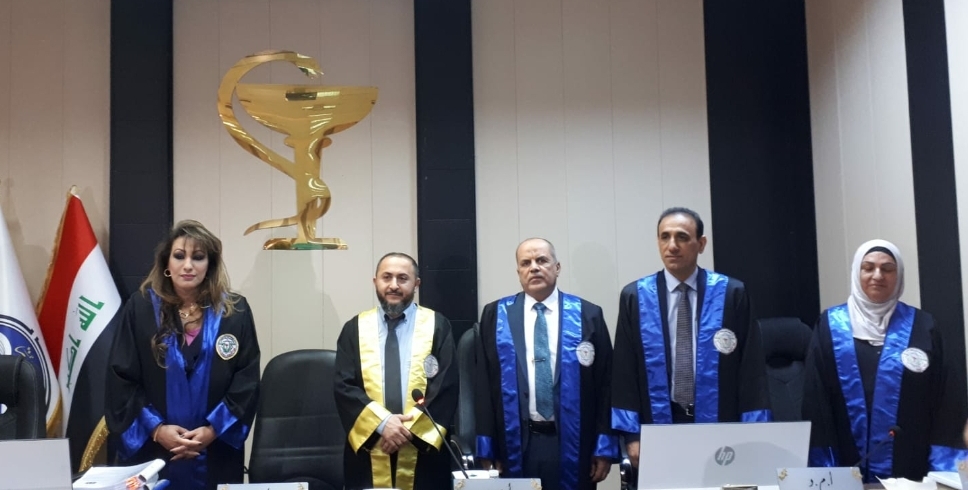The Faculty of Pharmacy discussed the Ph.D. dissertation entitled ((Phytochemical Study, Preliminary Cytotoxic Evaluation, and Molecular Docking of Some Components Present in the Bulb of the Narcissus jonquilla L. Plant Cultivated in Iraq)) by the student Usama Hassan Abdel Wahab in the Pharmacognosy and Medicinal Plants Department, and his supervisor Prof. Dr. Eman Saadi Saleh . The study aimed to examine the chemical components and make a preliminary assessment of the cytotoxicity and molecular binding of some compounds present in the bulb of the Narcissus jonquilla plant.The study included the examination of the phytochemical components of Narcissus jonquilla bulbs, where the plant was extracted, isolated, purified, and characterized by the hot method by Soxhlet device using 95% methanol, and fractionation was performed by separating the components according to the differences in their polarity using petroleum ether, chloroform, ethyl acetate, and butanol. Preliminary identification of the various active ingredients was carried out by means of specific chemical tests, namely thin layer chromatography (TLC), high performance liquid chromatography (HPLC), and PHPLC. In addition to conducting a qualitative and quantitative evaluation of a number of selected compounds using HPLC analysis, compounds from the petroleum ether fraction, chloroform, ethyl acetate, and butanol from the plant extract by PTLC; to determine the composition of this compound, FT-IR, mass spectroscopy, and nuclear magnetic resonance (1H-NMR) tests were performed. The results showed a difference in the relative concentration of the phytochemical components in the bulb extract of Narcissus jonquilla. The analysis revealed the presence of a number of compounds in the fraction of petroleum ether, chloroform, ethyl acetate and butanol from the extracts of the bulbs of Narcissus jonquilla that have many biological and pharmacological activities. The compounds lycorin, crinine, and narciclasine were extracted from the chloroform fraction with cytotoxic activity, determined using the MTT assay, against brain (AMGM5), lung (A-549), colon (HRT-18), breast (MCF-7), and lung (AMJ-13) Cancer cells. This study demonstrated the presence of the most important alkaloids (Lycorine, Galantamine, Narciclasine, and Crinine), steroids (Ursolic acid and Stigmasterol), flavonoids Quercetin, and Chlorogenic acid in the plant (Narcissus jonquilla) cultivated in Iraq, as well as the presence of a high effect in the molecular fusion of certain compounds isolated from the bulb of the plant, such as Lycorine.


